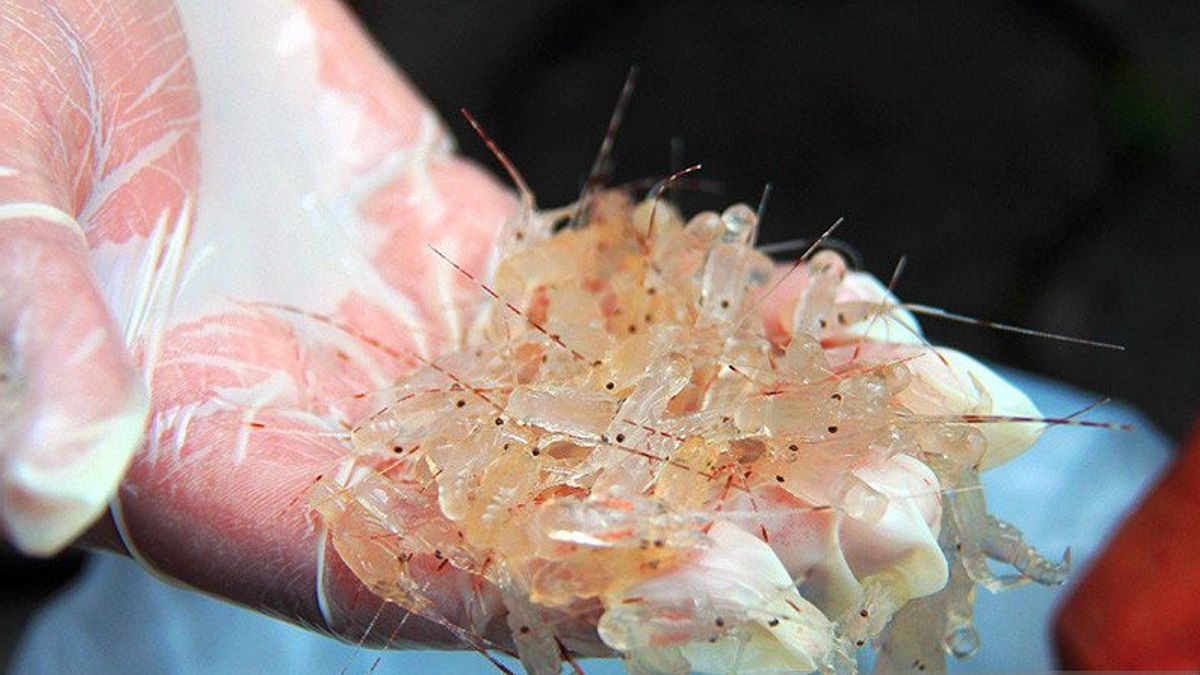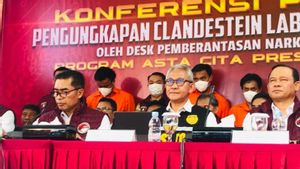BENGKULU - Head of the Marine and Fisheries Service (DKP) of Bengkulu Province, Sri Hartati, revealed that as many as three million fries (lobster seeds) from Bengkulu have been exported in the last six months.
"I don't remember the exact number, but the figure was nearly three million and we obtained the data from the e-lobster application and from the fish quarantine," Sri said in Bengkulu as quoted by Antara, Thursday, December 3.
According to him, most of the lobster seeds were caught by fishermen in Kaur Regency and some were collected from fishermen on Enggano Island, North Bengkulu Regency, Bengkulu Province and several other districts.
However, the lobster seeds are not exported directly from Bengkulu Province but through the Port of Tanjung Priok, Jakarta.
Sri admitted that she did not know how many exporters were involved in the fry collection business in Bengkulu Province. Permit processing is carried out directly to the district government where the fries are collected.
As a result, the Bengkulu Province DKP has difficulty in conducting surveillance because it is not authorized to issue a certificate of origin of seeds (SKAB), which is one of the requirements for exporting companies to collect lobster seeds.
"So the regency has issued the SKAB, so we don't know how many fry exporters have entered Bengkulu Province," said Sri.
In addition, the lack of budget is also an obstacle for his party not to supervise to ensure that the collection of lobster seeds is not carried out on a large scale and continues to comply with the Ministry of Marine Affairs and Fisheries Regulation Number 12 of 2020 concerning the management of lobsters, crabs and crabs.
In fact, said Sri, there are many shrimp fry export practices in Bengkulu that are not in accordance with those regulated by the Ministry of Maritime Affairs Regulation 12/2020. One of them is like an exporter company that does not build a place for fry cultivation.
The export of fry that occurs in Bengkulu, which starts with local fishermen collecting lobster seeds, is then purchased by an exporting company through its partner in Bengkulu, then sent abroad.
"It shouldn't be like that. It should have been cultivated first in Bengkulu, there had to be a release into the waters after cultivating, then exported. But what happened was not like that," he explained.
According to Sri, the authority to issue the SKAB should be given to the provincial government so that it can carry out a comprehensive supervision of the lobster producing areas.
In addition, if the authority is given to the provincial government, it will be in line with other policies such as the authority to issue lobster cultivation location permits and the determination of lobster release locations whose authority lies with the provincial government.
The English, Chinese, Japanese, Arabic, and French versions are automatically generated by the AI. So there may still be inaccuracies in translating, please always see Indonesian as our main language. (system supported by DigitalSiber.id)













